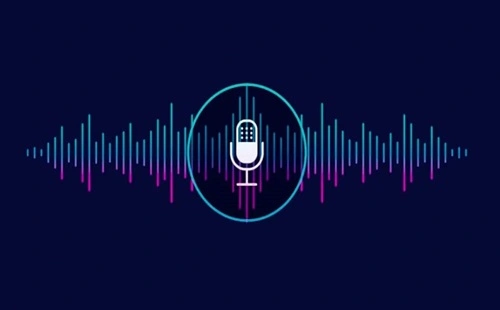Yes, call recording is legal in India, but its legality depends on the context and the manner in which it is used. Recording a call without the consent of the other party is not explicitly prohibited by Indian law, but using such recordings without authorization or in ways that violate privacy laws can lead to legal consequences. The admissibility of recorded calls as evidence also varies depending on the situation.
Legal Framework Governing Call Recording in India

- Indian Telegraph Act, 1885
- Section 5(2) allows the government to intercept or monitor communications in cases of public emergency or threats to public safety, provided proper authorization is obtained.
- Private individuals, however, do not have the same authority to record or monitor calls without consent.
- Information Technology Act, 2000
- Section 69 empowers the government to intercept, monitor, or decrypt electronic communications under specific conditions for national security or law enforcement purposes.
- Recording a call without consent could potentially fall under unauthorized access to communication, particularly if it violates privacy.
- Right to Privacy
- The Supreme Court of India, in the landmark judgment of Justice K.S. Puttaswamy (Retd.) v. Union of India (2017), recognized the right to privacy as a fundamental right under Article 21 of the Constitution.
- Call recording without consent can be seen as a violation of this right, especially if the recording is used without the knowledge or approval of the other party.
- Indian Evidence Act, 1872
- Call recordings can be admissible as evidence in court under Section 65B, provided they meet certain conditions:
- The recording must be authentic.
- A certificate of authenticity is required for electronic evidence.
- The recording must not have been obtained illegally or in violation of privacy laws.
- Call recordings can be admissible as evidence in court under Section 65B, provided they meet certain conditions:
When is Call Recording Legal?
- Consent-Based Recording
- Recording a call with the explicit or implied consent of the other party is generally legal.
- Organizations often record calls for quality assurance or dispute resolution after informing the participants. This practice is lawful as long as participants are notified.
- Personal Use
- Recording calls for personal purposes, such as for keeping records of conversations, is typically not considered illegal.
- However, sharing or publishing such recordings without consent can lead to privacy violations and defamation claims.
- Admissibility in Legal Disputes
- Courts may accept call recordings as evidence if they are relevant to the case and were not obtained illegally.
- For example, recordings used to prove harassment, threats, or fraud may be permissible if their authenticity is established.
When is Call Recording Illegal?
- Recording Without Consent
- Recording a call without informing the other party can lead to allegations of privacy infringement.
- If the recording is used to harm, blackmail, or defame the other party, it can result in criminal charges under defamation (Section 499 of IPC) or criminal intimidation (Section 503 of IPC).
- Publishing or Sharing Without Authorization
- Sharing recorded calls on social media, public platforms, or with third parties without consent can lead to legal action under:
- The IT Act, for data protection violations.
- Civil and criminal defamation laws.
- Sharing recorded calls on social media, public platforms, or with third parties without consent can lead to legal action under:
- Interception by Unauthorized Individuals
- Recording calls of third parties without their knowledge is considered illegal and punishable under the Indian Telegraph Act and IT Act.
Penalties for Illegal Call Recording
- Under the Indian Penal Code (IPC)
- Violation of privacy can attract penalties under Sections 500 (defamation) and 503 (criminal intimidation).
- Under the IT Act, 2000
- Unauthorized access to communication may result in penalties of up to ₹1 lakh or imprisonment for up to 3 years, depending on the severity of the offense.
Practical Considerations for Call Recording
- Consent Is Key
- Always inform the other party before recording a call, especially in professional or sensitive situations.
- Organizations should implement disclaimers at the start of calls to ensure compliance.
- Restricted Use
- Avoid sharing recordings with unauthorized individuals or using them in a manner that infringes on privacy.
- Legal Guidance
- If you plan to use a call recording as evidence in a legal dispute, consult a lawyer to ensure it complies with admissibility requirements under the Indian Evidence Act.
Recent Developments and Precedents
- Corporate Sector
- Many companies now include disclaimers about call recordings for quality and training purposes, ensuring compliance with legal norms.
- Judicial Cases
- Indian courts have accepted call recordings as evidence in cases of domestic abuse, workplace harassment, and financial disputes, provided they meet authenticity and relevance criteria.
- Technology and Privacy Concerns
- The increasing use of smartphones and call-recording apps has heightened concerns about privacy violations, prompting discussions about stricter regulations.
Conclusion
Call recording in India is legal if done with consent and used responsibly. While the law permits personal use and consent-based recordings, unauthorized recordings can lead to privacy violations and legal penalties. To stay on the right side of the law, always ensure that recordings are conducted transparently and used ethically. When in doubt, seek legal advice to navigate the complexities surrounding call recording and privacy laws in India.
Hina Abbasi is Editor and a passionate sports and entertainment content writer at WinnersMaze.com. Hina’s expertise spans across a wide range of sports, and interest in many TV shows allowing her to deliver insightful analysis and compelling stories that resonate with readers.

